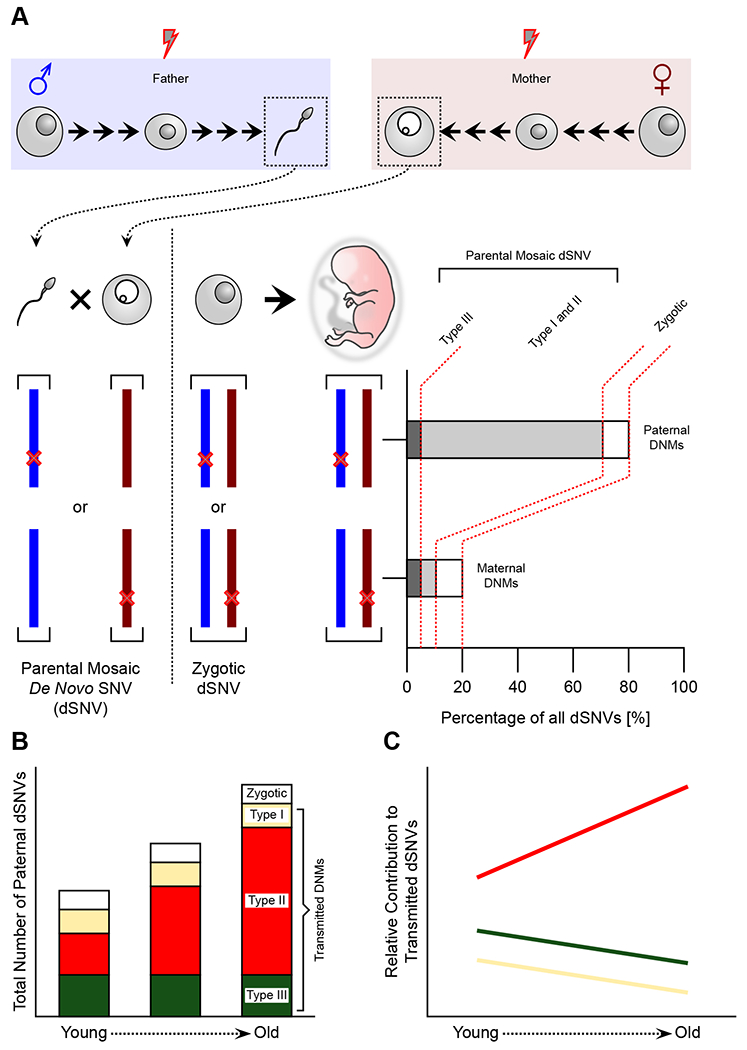Figure 4.

Paternal mutations in offspring are largely due to age-dependent sperm mosaicism.
(A) Single nucleotide variants (SNVs) occurring during spermatogenesis or oogenesis of the parents are present in the respective germ cells prior to conception (parental mosaic de novo SNVs, i.e. dSNVs) and will reside on the paternal or maternal haplotype of the embryo, respectively. dSNVs that occur following conception are defined as zygotic, and should be stochastically distributed across both haplotypes. Currently, we further assume that Type III mutations appear at similar rates in the male and female germ cell lineage. Thus the imbalance (80:20%) of dSNVs in favor of the paternal haplotype must derive from Type I and II sperm mosaicism.
(B) Type III mutations are determined during embryonic development and should remain constant with age. Similarly, the stochastic nature of Type I is likely independent of age effects. Thus, the observed increase of dSNVs with paternal age should derive mostly from Type II mutations that accumulate with each cell cycle.
(C) As a consequence of the increase of Type II mutations with age, the relative contribution of Types I and III decreases. Likewise, the average intrafamilial recurrence risk of a given dSNV decreases with age.
